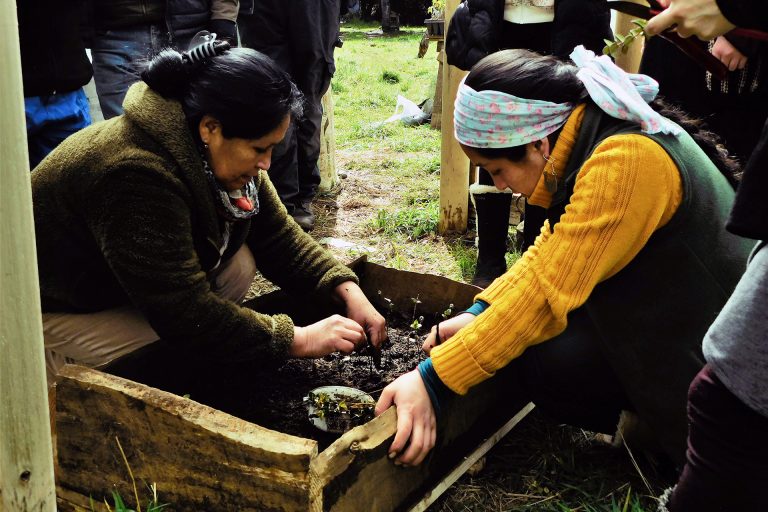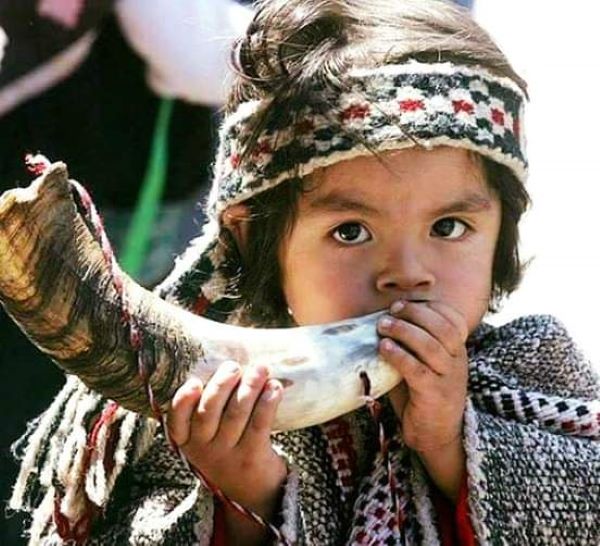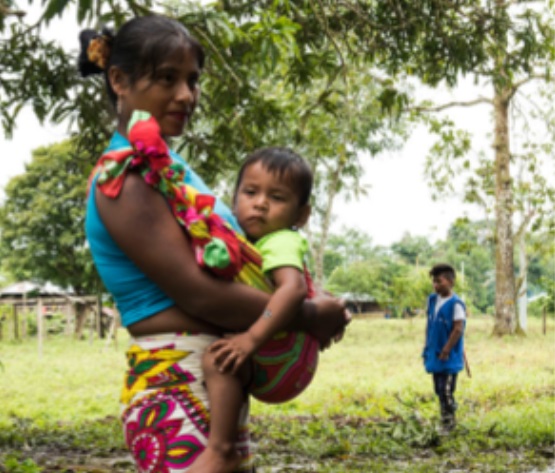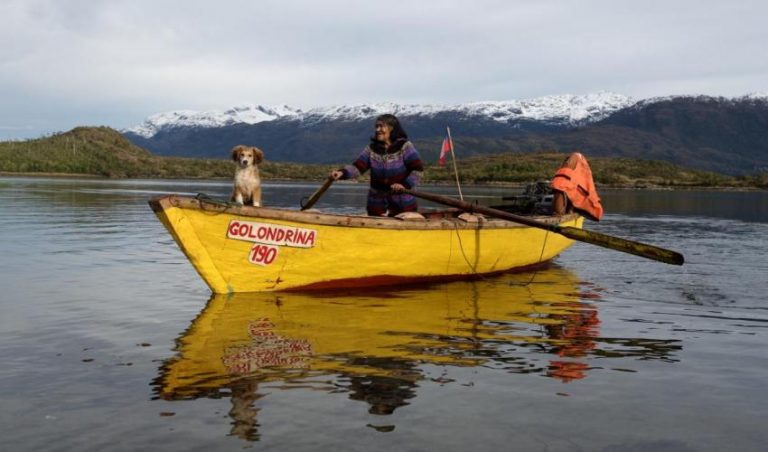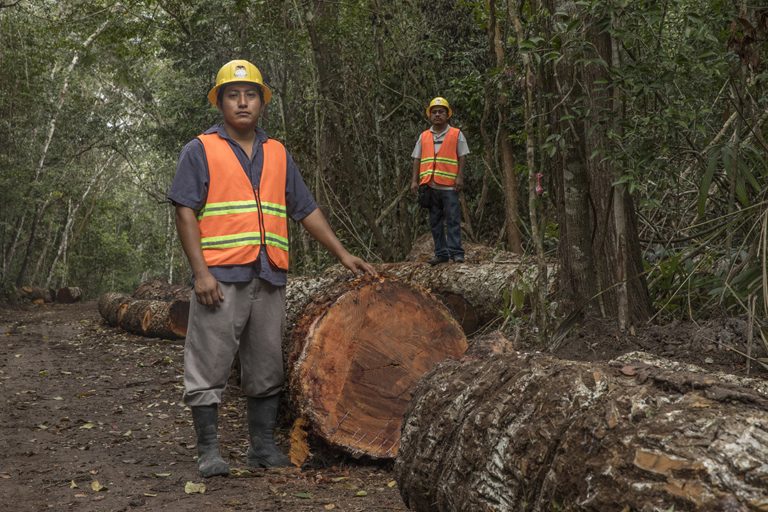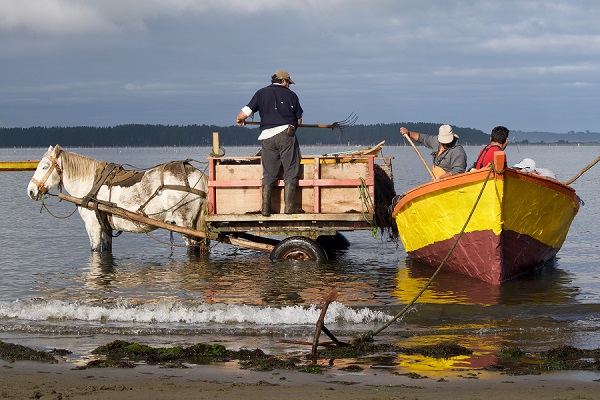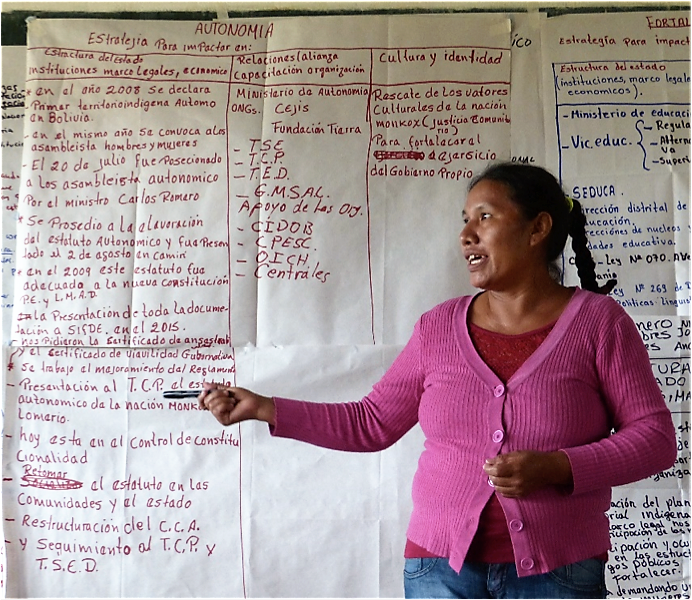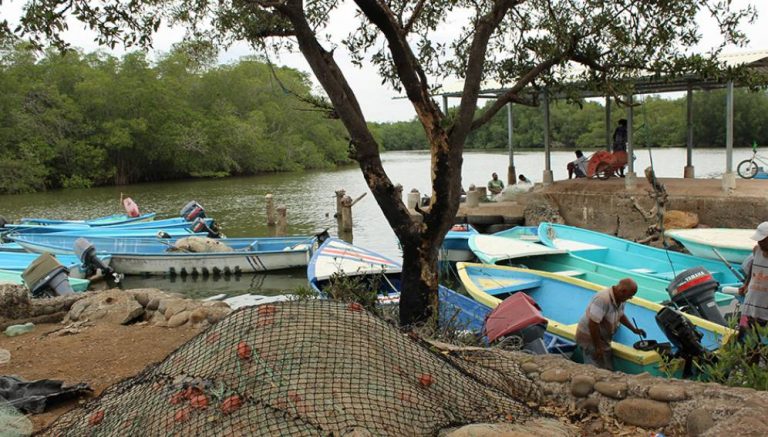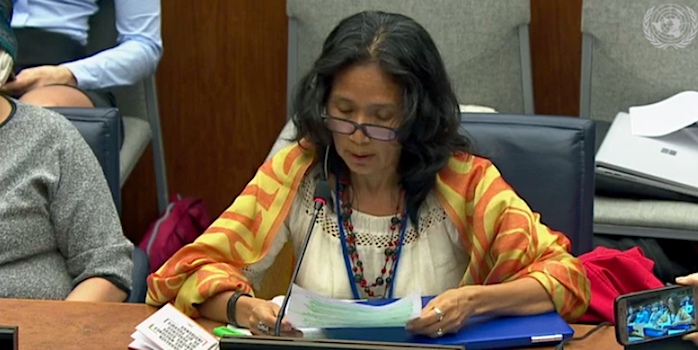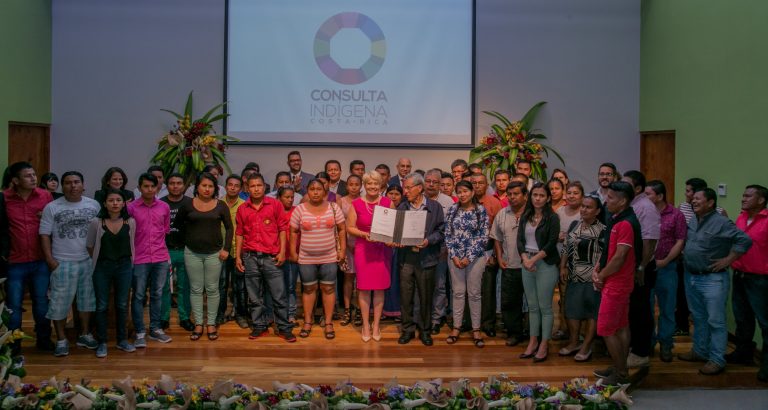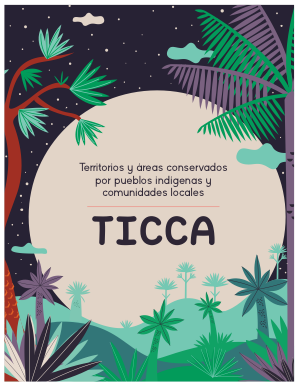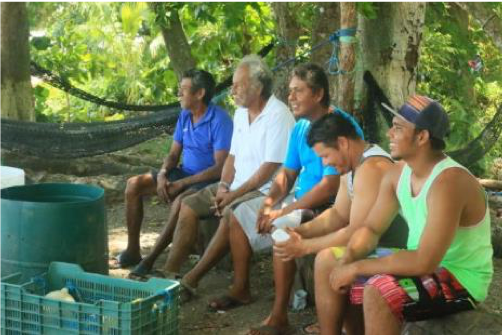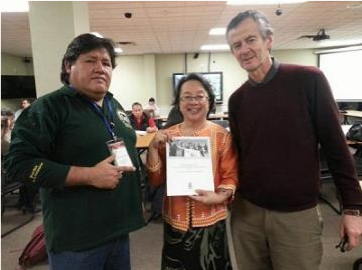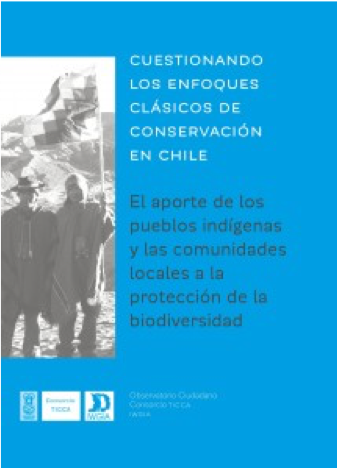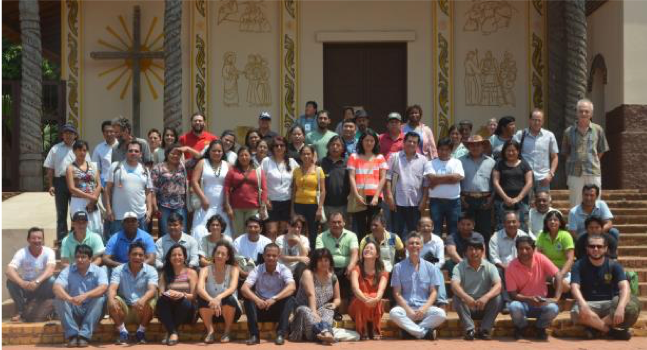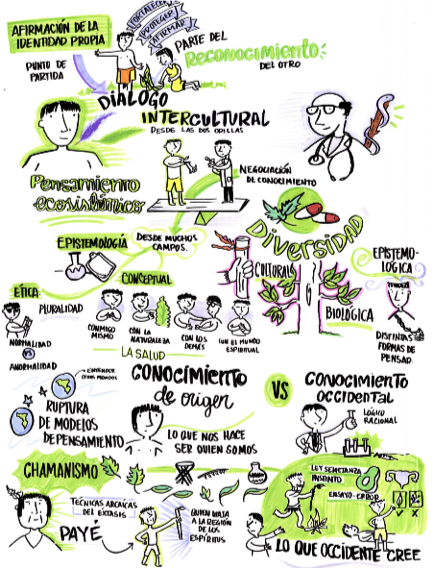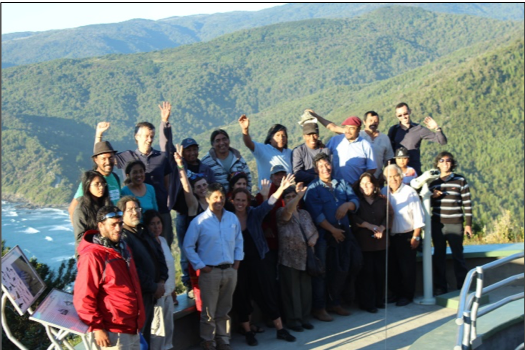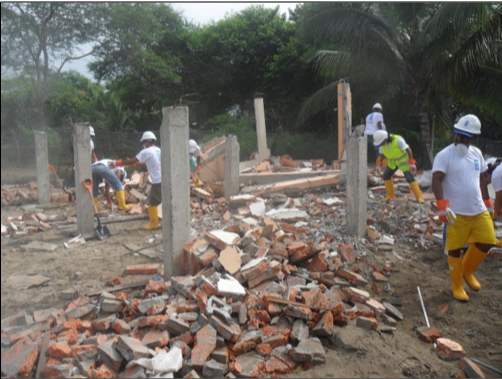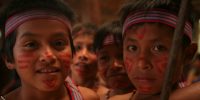ICCAs in Latin America are sites of origin and present homes of a great diversity of indigenous peoples. They are also the territories that welcomed Afro-descendant communities after their emancipation, as well as groups of migrant peasants.
Follow us on Facebook: TICCA Latinoamérica
Lake Budi: an initiative for biocultural restoration led by Mapuche-Lafkenche communities
Learn about the Budi Anumka Association, an initiative led by Mapuche-Lafkenche Indigenous communities for biocultural restoration in Lake Budi Read more ▸
Recovering Ancestral Instruments: A Political and Philosophical-Spiritual Act
“When we play the instruments in ceremonies or celebrations, we demonstrate to the different energies that we know our origin and understand our role: we are defenders of life, of the territories, we are one more energy, we are part of the whole,” says Lucas Quintupuray, ICCA Consortium Council member. Read more ▸
Los TICCA en Colombia – Dos Boletines para Saber Más…!
El CEMI, miembro del Consorcio en Colombia, publicó dos boletines llenos de fotografías, sobre los TICCA y el apoyo estratégico a los TICCA en Colombia. Read more ▸
Parque Nacional Bernardo O’Higgins/Territorio Kawésqar Waes: Conservación y Gestión en un Territorio Ancestral
Este trabajo sobre el parque nacional Bernardo O’Higgins en el territorio kawésqar waes, en Chile, busca definir una línea base de los recursos naturales, identificar las áreas con distinta vocación de uso, y el potencial económico asociado a actividades de turismo, incorporando los intereses del pueblo originario involucrado ancestralmente con los territorios protegidos. Read more ▸
Mexico’s ejidos find sustainability by including women and youth
Podcast episode featuring a special report on the community-based conservation and agroforestry operations known as ejidos in Mexico featuring ICCA Consortium Honorary member David Barkin. Read more ▸
The Caylin Island community, Chile, creates its ECMPO: Coastal and Marine Area for Native People
The community of Caylin Island asked the Chilean State to create a Coastal and Marine Area of Native People around the entire island and the adjacent Chaiguao Peninsula. The proposal was approved in May 2018. Read more ▸
Coastal Indigenous communities in Chile: the historical struggle for access to marine and coastal areas and resources
Marine and coastal areas that have been used harmoniously by indigenous people in Chile for centuries are under threat. Chilean government’s policies are aligned to support the interests of big corporations and to create obstacles for Indigenous communities’ rights. Read more ▸
Investigación-acción y fortalecimiento de capacidades sobre la autonomía indígena como estrategia de gestión y control territorial, en Bolivia
La Nación Monkox de Lomerío fue el primer Pueblo Indígena de Bolivia en autoproclamarse autónomo in 2008 y es un caso icónico en Bolivia de lucha y avance en el reconocimiento de derechos de los pueblos indígenas y de gestión territorial desde lo local. Read more ▸
A Fight to Put Artisanal Fishers on the Map in Costa Rica
Nestled between Tortuguero National Park and the Nicaragua border, the community of Barra del Colorado havs been quietly making a living out of shrimp fishing for generations. A letter sent to the government in August 2015 marked the beginning of a fight for the licence to fish, which continues today. Read more ▸
Indígenas de Bolivia Denuncian ante la ONU que Megaproyectos Amenazan su Existencia
La indígena Ruth Alipaz denunció en la plenario del Foro Permanente de los asuntos Indígenas de la ONU que más de 5000 indígenas de cinco naciones de Bolivia perderán sus tierras con la construcción de dos megarepresas impulsadas por el gobierno boliviano. Read more ▸
Costa Rica firma Mecanismo General de Consulta a Pueblos Indígenas
Interesante proceso en Costa Rica: el país cuenta con un Mecanismo General de Consulta a Pueblos Indígenas, desarrollado bajo el estándar de “consulta sobre la consulta”, originado en recomendaciones de la Relatoría Especial sobre Pueblos Indígenas de la Organización Naciones Unidas. Read more ▸
Comunidades Tradicionales e Indígenas Dialogan: “TICCA Brasil”
Al final de febrero, en Brasil dos reuniones sobre los TICCA se llevaron a cabo para formular una estrategia de apoyo al fortalecimiento y reconocimiento de los TICCA, planificar acciones institucionales y buscar integración y alianzas interinstitucionales. Read more ▸
Comienza fase de ejecución de la Iniciativa Global de Apoyo a los TICCA en Colombia
Por: Carolina Amaya, punto focal en Colombia para el Consorcio TICCA, y directora científica y editora general del CEMI (miembro del Consorcio TICCA) En… Read more “Comienza fase de ejecución de la Iniciativa Global de Apoyo a los TICCA en Colombia” ▸
Pura Pesca – nuevo documental en Costa Rica
Por: Association Terres de Cultures, Miembro del Consorcio TICCA y CoopeSoliDar R.L Pura Pesca es un documental de la asociación francesa Terres de Cultures… Read more “Pura Pesca – nuevo documental en Costa Rica” ▸
Relatora ONU recibe informe preliminar de Evaluación de Impacto en DDHH de proyectos mineros canadienses en territorio diaguita huascoaltino
En el marco del seminario sobre consulta, consentimiento y gobernanza indígena de recursos naturales que se realiza en Thunder Bay, Canadá, con la asistencia… Read more “Relatora ONU recibe informe preliminar de Evaluación de Impacto en DDHH de proyectos mineros canadienses en territorio diaguita huascoaltino” ▸
Cuestionando los enfoques clásicos de conservación en Chile: el aporte de los pueblos indígenas y las comunidades locales a la protección de la biodiversidad
Por: Observatorio Ciudadano, Miembro del Consorcio TICCA – y el Consorcio TICCA La relación entre pueblos indígenas, comunidades locales y conservación de la naturaleza… Read more “Cuestionando los enfoques clásicos de conservación en Chile: el aporte de los pueblos indígenas y las comunidades locales a la protección de la biodiversidad” ▸
Intercambio regional de capacitación en técnicas y herramientas de gestión de los TICCA y modelos de desarrollo
Por: Carmen E. Miranda L., Coordinadora del Consorcio TICCA para los países Amazónicos Con el apoyo de la Iniciativa Global de Apoyo a los… Read more “Intercambio regional de capacitación en técnicas y herramientas de gestión de los TICCA y modelos de desarrollo” ▸
Materiales interculturales para la protección de los pueblos indígenas, la cultura y el territorio
Por: Carolina Amaya, Centro de Estudios Médicos Interculturales (CEMI) El Centro de Estudios Médicos Interculturales (CEMI), organización miembro del Consorcio, comparte algunos materiales pedagógicos… Read more “Materiales interculturales para la protección de los pueblos indígenas, la cultura y el territorio” ▸
Promoviendo la participación e incidencia de pueblos originarios en la discusión de un proyecto de ley que podría tener importantes implicancias para los TICCA en Chile
Por: Lorena Arce, Coordinadora Regional del Consorcio TICCA, José Aylwin Co-Director del Observatorio Ciudadano & Felipe Guerra, Abogado del Observatorio Ciudadano En junio de… Read more “Promoviendo la participación e incidencia de pueblos originarios en la discusión de un proyecto de ley que podría tener importantes implicancias para los TICCA en Chile” ▸
La respuesta comunitaria a las consecuencias de un fuerte terremoto en Ecuador
Por: Jairo Díaz Obando, FIDES, miembro del Consorcio TICCA El 16 de abril de 2016 a las 18:58 locales (–05UTC), sucedió un terremoto de… Read more “La respuesta comunitaria a las consecuencias de un fuerte terremoto en Ecuador” ▸

